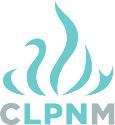Privacy Policy
The College of Licensed Practical Nurses of Manitoba (CLPNM) has a mandate to protect the public through fair, consistent and effective nursing regulation. The CLPNM collects personal information in order to meet this mandate and its related obligations under The Licensed Practical Nurses Act (LPN Act). The information we collect from our registrants for these purposes includes: demographic information, contact information, educational information, employment information, continuing competency information, and other information needed to assess qualifications for registration as an LPN .
The CLPNM manages your personal information in accordance with the LPN Act.
Usually the CLPNM collects personal information directly from our registrants and applicants. The CLPNM only collects information from third parties with consent, or if the CLPNM is authorized to do so in law.
The CLPNM uses personal information to fulfill its mandate of public protection and its related functions. Examples include:
• assessing applicant credentials,
• maintaining the CLPNM’s registers,
• facilitating payment of fees,
• investigating complaints and conduct issues,
• communicating with registrants about their registration and professional obligations, and
• providing registrants with information to support their professional development and practice.
For the most part, the CLPNM uses personal information for internal purposes. Employees and board or committee members may be granted access to personal information if it is required to carry out their duties.
In some circumstances, disclosure of personal information to third parties may be required. For example, each registrant’s name and registration status is deemed public information under the LPN Act and its Regulations, and as such, is accessible on the CLPNM’s website (www.clpnm.ca).
As of July 14, 2020 the CLPNM will also begin noting, in the Public Register, the nature of the conditions on a registrant’s registration. Conditions are public information under the LPN Act. Condition details will be noted while the conditions are in effect for a registrant, regardless of whether the conditions were applied before or after the system upgrade. Employers may wish to note that the Employer Verification System will continue to include information about the nature of any conditions on a registrant’s registration, as it did previously. Also as of July, 2020, the CLPNM’s general practice will be to include a notation on its Public Register when a registrant enters into a voluntary undertaking agreement with the CLPNM. The notation will not provide details regarding the contents of the voluntary undertaking agreement, only that one exists. The notation will remain on the registrant’s record, in the Public Register, as long as the agreement remains in effect. Although the publication of this information will now be the default, the CLPNM reserves the right to withhold information about specific voluntary undertaking agreements or conditions, under exceptional circumstances.
The CLPNM takes measures to prevent unauthorized access, loss, misuse, disclosure, or modification of personal information. Physical, technical and administrative safeguards, such as passwords, policies and confidentiality agreements, are in place to protect privacy. Like most organizations, email is the CLPNM’s primary means of communication with its registrants, applicants and stakeholders.
The CLPNM has measures in place to protect against cyber risk and accidental disclosure; however, like all organizations, some amount of risk always remains. By engaging in transactions with the CLPNM, you are deemed to have accepted this risk.
The CLPNM may, from time to time, collect web usage information for the purpose of statistical analysis. Only aggregated data that does not identify you as an individual will be used for this purpose. The CLPNM will not seek to match IP addresses to identifiable individuals unless necessary for an investigation into suspected illegal behaviour.


